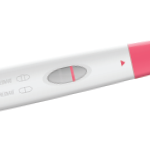The FDA is recommending pregnant women avoid using NSAIDs as early as week 20 of pregnancy due to the risk of kidney problems in a developing fetus.


The FDA is recommending pregnant women avoid using NSAIDs as early as week 20 of pregnancy due to the risk of kidney problems in a developing fetus.
Pregnancy complications are common in lupus and antiphospholipid syndrome (APS), but can we predict and prevent them? The Rheumatology Research Foundation Memorial Lectureship to Honor Shaun Ruddy, MD, will review the predictors and mechanisms of pregnancy complications, as well as potential interventions for preventing pregnancy complications associated with lupus and APS. Watch for it on…

A recent study in The Journal of Rheumatology sheds light on the importance of preconceptional cardiovascular health in women with systemic lupus erythematosus. Although many questions remain, improved cardiovascular health measures seem to positively affect pregnancy outcomes, suggesting a potential role for preconception cardiovascular interventions.1 Women with lupus now have healthier pregnancies than in the…

According to new research, women with SLE are at the highest risk for adverse pregnancy outcomes during a lupus flare. The data may enable clinicians to use risk stratification and tailored monitoring to counsel SLE patients who are pregnant or considering pregnancy. Researchers also found that maternal age, lupus nephritis and antiphospholipid antibodies may affect pregnancy outcomes…

Recent research indicates that previous concerns about mortality associated with pregnancy in women with SLE may no longer be applicable. In the study, researchers found a significant decline in the in-hospital maternal mortality rate of women with SLE and a decrease in their length of non-delivery related hospitalization over the past two decades…
Arthritis Care & Research |
Pregnant women with inflammatory arthritis may have an increased risk for preterm delivery. New research examined the risk of preterm delivery and other pregnancy complications in women with RA and JIA vs. healthy controls…
Reuters Staff |
NEW YORK (Reuters Health)—Pregnancy outcomes in women with systemic lupus erythematosus (SLE) have improved markedly over the past two decades, although pregnancy risks remain higher than in women without lupus, according to a trends analysis. “Thirty years ago, most women with SLE were advised to avoid pregnancy because of high risks for maternal and fetal…

New data from India suggest women with idiopathic inflammatory myositis are at increased risk of poor fetal outcomes and spontaneous abortions. In the study, researchers found these women had worse obstetric outcomes and increased risk of fetal complications…
Megan Brooks |
NEW YORK (Reuters Health)—About 15% of women who develop carpal tunnel syndrome (CTS) while pregnant will suffer persistent and worsening symptoms long after delivery, a new study suggests. “Conventional medical wisdom has been that gestational carpal tunnel syndrome simply goes away after pregnancy, and for many women this is true. However, in our practice this…

AMSTERDAM—Clinicians who are counseling women with systemic lupus erythematosus (SLE) have the benefit of an array of new insights into factors linked with increased risk of pregnancy loss, how SLE therapies affect pregnancy and data on outcomes of children born to mothers with SLE, an expert said in a session at EULAR: the Annual European…